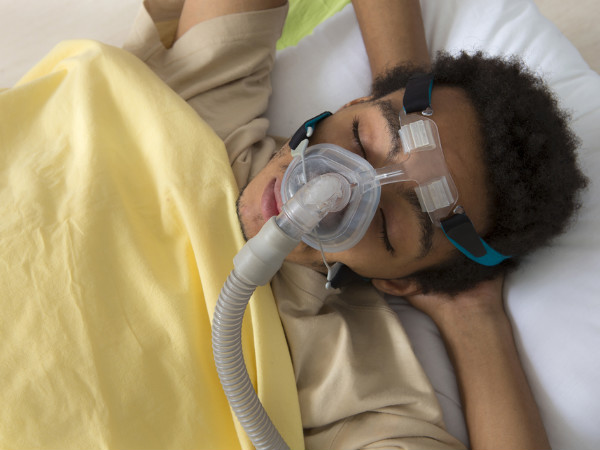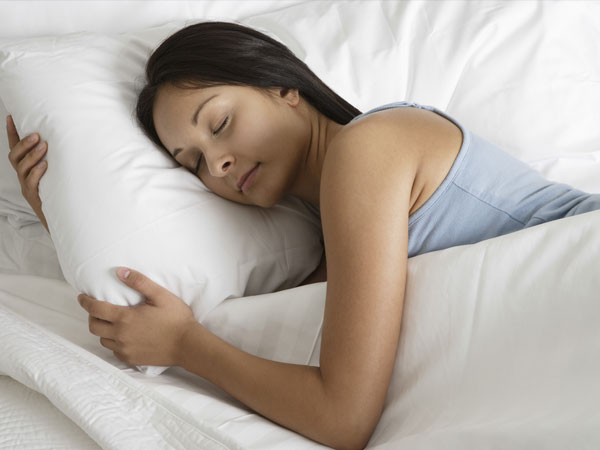Just In
- 12 min ago

- 3 hrs ago

- 4 hrs ago

- 9 hrs ago

Don't Miss
- Finance
 Results, Dividend, Fundraise On April24: Buy Top Bank Stock Amid Rich Valuation, TP Rs 1400: Nomura
Results, Dividend, Fundraise On April24: Buy Top Bank Stock Amid Rich Valuation, TP Rs 1400: Nomura - Sports
 Who Won Yesterday's IPL Match 33? PBKS vs MI, IPL 2024 on April 17: Mumbai Indians Escape Last-Ditched Fight by Punjab Kings To Win
Who Won Yesterday's IPL Match 33? PBKS vs MI, IPL 2024 on April 17: Mumbai Indians Escape Last-Ditched Fight by Punjab Kings To Win - Movies
 Do Aur Do Pyaar OTT Release Date & Platform: When & Where To Watch Vidya Balan’s Film After Theatrical Run?
Do Aur Do Pyaar OTT Release Date & Platform: When & Where To Watch Vidya Balan’s Film After Theatrical Run? - News
 BRS Chief K Chandrasekhar Rao Slams BJP, Says K Kavitha's Arrest Is Vendetta Politics
BRS Chief K Chandrasekhar Rao Slams BJP, Says K Kavitha's Arrest Is Vendetta Politics - Automobiles
 Aprilia RS 457 Accessories: A Detailed Look At The Prices
Aprilia RS 457 Accessories: A Detailed Look At The Prices - Education
 Karnataka SSLC Result 2024 Soon, Know How to Check Through Website, SMS and Digilocker
Karnataka SSLC Result 2024 Soon, Know How to Check Through Website, SMS and Digilocker - Technology
 Nothing Ear, Ear a With ANC, Up to 42.5 Hours of Battery Launched; Check Price and Availability
Nothing Ear, Ear a With ANC, Up to 42.5 Hours of Battery Launched; Check Price and Availability - Travel
Telangana's Waterfall: A Serene Escape Into Nature's Marvels
Why You Having Sleep Apnea? Know Here
Do you stop breathing during sleep? Then you might be suffering from sleep apnea. Sleep apnea is a potentially serious disorder. In this, during sleep, you repeatedly stop breathing for short periods of time. This can lead to heart problems and other complications. Up to 7 percent of the population suffers from this unusual condition, and it is more common in men.
How Do You Know If You Have Sleep Apnea?

People usually experience excessive tiredness even after a full night's sleep. Sleep apnea causes the upper airways to shut off and the oxygen supply gets cut. So you stop breathing during sleep. This makes the person wake up to resume the breathing. Constant sleep interruptions result in feelings of fatigue during the day. Those affected by sleep apnea snore, gasp and choke very audibly.
The three main warning signs, that you stop breathing during sleep are loud and persistent snoring, choking episodes during sleep, sleepiness during the day, which can be accompanied by a morning headache. Often, breathing pauses are observed by the person's sleeping partner. In severe cases, the sufferers can wake up hundreds of times per night and gasp for air. These are some sleep apnea symptoms.
Complete apnea means that the you stop breathing during sleep for a ten-second period. During partial apnea, ventilation is briefly reduced by at least 50 percent. Due to poor quality of sleep, people can experience difficulty concentrating, moodiness and irritability. Breathing interruptions also influence hormone function. When sleep apnea is extreme, a hormone that controls urine production in the kidneys gets affected and people start waking up at night to go to the toilet. This frequent desperate need to urinate during the night is called nocturia.
You don't necessarily suffer from sleep apnea if you snore. Not every snorer has difficulty breathing. But, most people with apnea snore and this is the most common sign of the condition.

Risk
Factors
Why
do
i
stop
breathing
at
night
sleep?
Everyone
can
get
affected,
regardless
of
age,
gender
or
race.
However,
certain
factors
might
put
you
at
greater
risk
of
developing
the
condition.
Increased
Body
Weight
Obesity
is
an
important
risk
factor.
Fat
deposits
around
the
neck
can
disrupt
breathing
and
put
extra
pressure
on
the
airways.
However
slim
people
can
also
be
under
threat,
so
not
everyone
with
this
condition
is
overweight.
Neck
Circumference
People
with
thicker
necks
seem
to
have
more
susceptibility
for
sleep
apnea.
This
could
be
due
to
having
narrower
airways.
Neck
circumference
of
more
than
48
centimeters
means
a
high
risk,
while
a
measurement
of
below
37
centimeters
means
a
low
risk
for
sleep
apnea.
Certain characteristics and abnormalities that narrow the airways
Why do i stop breathing at night sleep? If you have a narrower throat or have some abnormalities that can make breathing harder such as enlarged tonsils, deformities of the nose. Also, if you have difficulty breathing through your nose, you may develop sleep apnea. This can be due to allergies or for anatomical reasons. People with sleep apnea tend to breathe through their mouth and sleep with their mouths open. Consequently, they wake up with dry mouth and gummy front teeth.
Being
Male
Is
it
normal
to
stop
breathing
during
sleep?
Is
is
not
a
normal
sign
if
you
stop
breathing
during
night.
Men
have
a
greater
risk
of
developing
sleep
apnea.
They
are
twice
as
likely
to
suffer
from
it
compared
to
women.
Women
increase
their
risk
after
menopause,
and
if
they
have
other
risk
factors,
such
as
being
overweight.
Being
Over
60
Sleep
apnea
gets
more
common
as
people
get
older.
Family
History
If
you
have
a
relative
with
sleep
apnea,
you
will
have
a
risk
to
develop
sleep
apnea.
This
might
be
due
to
the
anatomical
(body
structure
of
organisms
and
their
parts)
characteristics
that
run
in
the
family.
Use
Of
Alcohol
And
Certain
Drugs
If
you
drink
alcohol
or
take
sedatives
or
tranquilizers
before
going
to
bed,
this
can
increase
your
chances
of
having
breathing
problems.
These
substances
relax
the
muscles
in
your
throat.
This
can
inhibit
breathing.
They
also
inhibit
the
breathing
center
in
your
brain.
SmokingSmoking can increase the amount of phlegm (mucous) and fluids in your lungs and airways and make breathing more difficult. Smokers are three times more likely to suffer than non-smokers. If you quit smoking, the risk reduces. If you suspect that you might have sleep apnea, you should go and see your doctor, so that the condition can be investigated and treated. Sleep apnea has been linked to some serious conditions, such as heart failure, stroke and metabolic disorders, so it needs to be properly looked at.
Diagnosis
For
diagnosing,
a
set
of
investigations
is
performed
on
the
patient
while
he
or
she
sleeps.
The
examination
is
known
as
polysomnography
and
involves
various
recordings
of
the
person's
brain
activity,
eye
movements
and
muscle
movements.
Apnea
Treatment
If
the
most
likely
cause
of
the
condition
is
the
person's
lifestyle,
this
needs
to
be
addressed
first.
Weight
loss
and
smoking
cessation
should
be
done.
Also,
alcohol
should
be
avoided
before
going
to
bed.
Treatment options include the use of a pneumatic splint (continuous positive airway pressure), surgery and intra-oral devices. A nasal or facial oxygen mask is worn overnight that keeps the airways open. It makes the person breathe through the nose rather than through the mouth.
Most people require life-long therapy if the severity of the condition impacts on their daily activities and reduces the quality of life.
-
 health20-Year-Old Man In China Suffers From Delusional Love Disorder, Know What Is Erotomania And Its Signs
health20-Year-Old Man In China Suffers From Delusional Love Disorder, Know What Is Erotomania And Its Signs -
 healthPremam Movie Director’s Instagram Post: Can You Self-Diagnose Autism Spectrum Disorder?
healthPremam Movie Director’s Instagram Post: Can You Self-Diagnose Autism Spectrum Disorder? -
 healthPTSD Day: 4 Common Causes Of Post Traumatic Stress Disorder
healthPTSD Day: 4 Common Causes Of Post Traumatic Stress Disorder -
 kidsRhinovirus And Enterovirus-D68 In Kids: What You Should Know About The CDC Warning
kidsRhinovirus And Enterovirus-D68 In Kids: What You Should Know About The CDC Warning -
 disorders cureJustin Bieber Diagnosed With Ramsay Hunt Syndrome: Know More About The Disease
disorders cureJustin Bieber Diagnosed With Ramsay Hunt Syndrome: Know More About The Disease -
 disorders cureWhat Is Autocannibalism: The Practice Of Eating Oneself (Biting Nails, Eating Boogers) And Its Causes
disorders cureWhat Is Autocannibalism: The Practice Of Eating Oneself (Biting Nails, Eating Boogers) And Its Causes -
 wellnessHow To Manage The 5 Common Lifestyle Disorders: An Expert's Opinion
wellnessHow To Manage The 5 Common Lifestyle Disorders: An Expert's Opinion -
 disorders cure12 Effective Natural Remedies To Treat Dry Eyes
disorders cure12 Effective Natural Remedies To Treat Dry Eyes -
 disorders cureWhat Causes Eyelid Twitches (Myokymia) And How To Treat It
disorders cureWhat Causes Eyelid Twitches (Myokymia) And How To Treat It -
 disorders cureAvoidant Personality Disorder: Causes, Symptoms, Diagnosis And Treatment
disorders cureAvoidant Personality Disorder: Causes, Symptoms, Diagnosis And Treatment -
 disorders cureWhat Is Gaming Disorder And How It Can Be Treated
disorders cureWhat Is Gaming Disorder And How It Can Be Treated -
 wellnessStool Transplant Effective For Treating Intestinal Disorders, Claims Study
wellnessStool Transplant Effective For Treating Intestinal Disorders, Claims Study


 Click it and Unblock the Notifications
Click it and Unblock the Notifications



